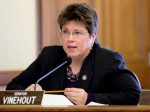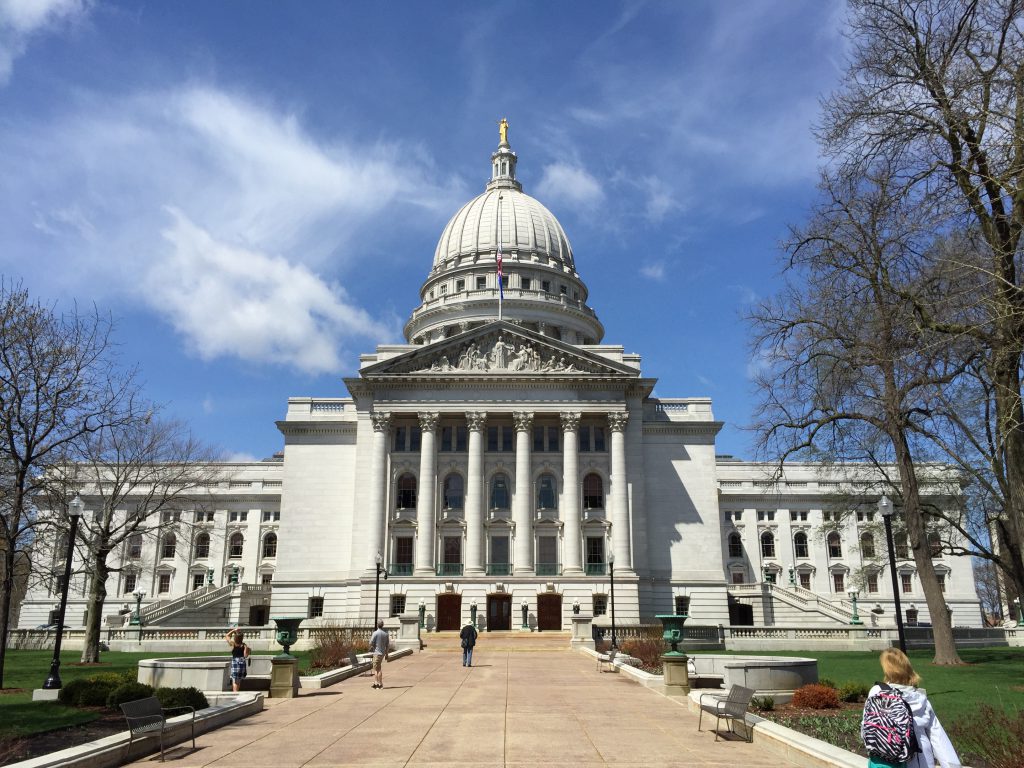GOP Bills Change 400 Sections of State Law
Changes help special interests, overthrow voters’ decision in November election.
If you were a legislative leader in Wisconsin, and had an opportunity to pass new laws before your party’s governor left office, what would you do? What would you fix as your last act in power?
As I face my last Senate votes, I am working hard to understand what laws my Republican colleagues choose to pass before the new Democratic Governor takes office.
Late last Friday night, after Senate staff went home for the weekend, Republican leaders released their last act. Five bills detailing changes to over 400 sections of state law.
I learned late Friday, there would be one public hearing on Monday and the full Legislature will act on Tuesday. By the time many of you read this column, the bills passed both houses and await Governor Walker’s signature into law.
Based on concerns expressed by Wisconsinites, you would think the last act of the GOP leaders would be fixing the transportation budget, school funding reform and lowering healthcare premiums.
Not a chance.
Instead, Republican leaders are pushing a series of bills that provide tax loopholes for company owners, and removing caps on the number of large companies that could claim very large cash subsidies. These same bills give control of the troubled Wisconsin Economic Development Corporation (WEDC) to the two Republican leaders by creating a majority of GOP legislative leaders’ appointees.
These same bills create harsh rules that must be followed by people facing challenges, like being unemployed, needing supplemental nutrition, health care or facing difficulties in proving citizenship to vote.
Based on my preliminary read of the bills, provisions in the bills limit powers of the incoming Governor and Attorney General and create onerous requirements for the new administration. Agency directors will be coming back to the Legislature for permission to file federal reports over and over again, rather than catching up on backlogs, and providing better service to people of the state.
Innovation should be encouraged in a new administration. Instead, the bills would handcuff agency officials by requiring repeated approval for any different or new use of federal funds from the Legislature’s budget writing committee. For example, I counted at least four repeated approvals needed by the Secretary of Health Services to seek federal money for nursing homes – a high priority because Wisconsin ranks last in reimbursement. These onerous requirements would affect many health programs Wisconsinites love, including Senior Care, FamilyCare, IRIS and BadgerCare.
In many cases, borrowing and cash transfers used by the Walker administration to fill budget holes, show more cash at year’s end, and move money around for pet projects, like Foxconn, would no longer be allowed.
Ironically, a computer project financial disclosure Walker vetoed as onerous, would be required of the incoming governor. Presumably, Governor Walker will sign the bills into law as his last act. Perhaps he will change his mind about what disclosure should and should not be required of the executive branch.
For example, provisions of the bills would emasculate the Attorney General. In cases of constitutionality and enforceability of statutes, it would be the Legislature representing the state in court – not the Attorney General. Legislative leaders would accomplish this by appointing outside counsel beholden only to the leaders and paid for by taxpayers.
It appears other changes in the court system are directed at influencing environmental protection enforcement cases.
The final act of the Party in power tells us something about the priorities of that Party – prioritizing tax breaks and corporate cash subsidies and penalizing those needing healthcare, supplemental nutrition, and help finding employment.
The will of the people is not represented in this final act by Republicans and Governor Walker. Wisconsinites elected a new governor with different priorities and their expectation is a respectful transition of power.
State Sen. Kathleen Vinehout, D-Alma, is a member of the Wisconsin state Senate.
More about the Lame Duck Laws
- Supreme Court Hears Case on Legislature’s Power - Sarah Lehr - Apr 3rd, 2025
- Four Years Later, State’s Lame Duck Law Still Faces Court Challenge - Shawn Johnson - Jan 17th, 2023
- Judge Rules Against Law Giving Legislators Power Over Attorney General Settlements - Shawn Johnson - May 11th, 2022
- State Supreme Court Dismisses AG’s Lame-Duck Lawsuit - Ruth Conniff - Mar 25th, 2021
- Kaul Sues Legislature Over Lame Duck Laws - Melanie Conklin - Nov 24th, 2020
- AG Kaul Announces Legal Action to Allow DOJ to Again Enforce Wisconsin Laws Without Unconstitutional Legislative Interference - Josh Kaul - Nov 23rd, 2020
- Vos Thinks Lame-Duck Session Didn’t Go Far Enough - Melanie Conklin - Jul 31st, 2020
- The State of Politics: Court Rulings Against Evers Sow Confusion - Steven Walters - Jul 20th, 2020
- Court Tosses Dems’ Lame-Duck Suit - Laurel White - Jul 16th, 2020
- Op Ed: State High Court Nullifies 2018 Election - James Rowen - Jul 12th, 2020
Read more about Lame Duck Laws here
Op-Ed
-
Wisconsin Candidates Decry Money in Politics, Plan to Raise Tons of It
 Dec 15th, 2025 by Ruth Conniff
Dec 15th, 2025 by Ruth Conniff
-
Trump Left Contraceptives to Rot; Women Pay the Price
 Dec 8th, 2025 by Dr. Shefaali Sharma
Dec 8th, 2025 by Dr. Shefaali Sharma
-
Why the Common Council’s Amended Budget is Good Policy for Milwaukee
 Nov 20th, 2025 by Alds. Marina Dimitrijevic and Russell W. Stamper, II
Nov 20th, 2025 by Alds. Marina Dimitrijevic and Russell W. Stamper, II






















